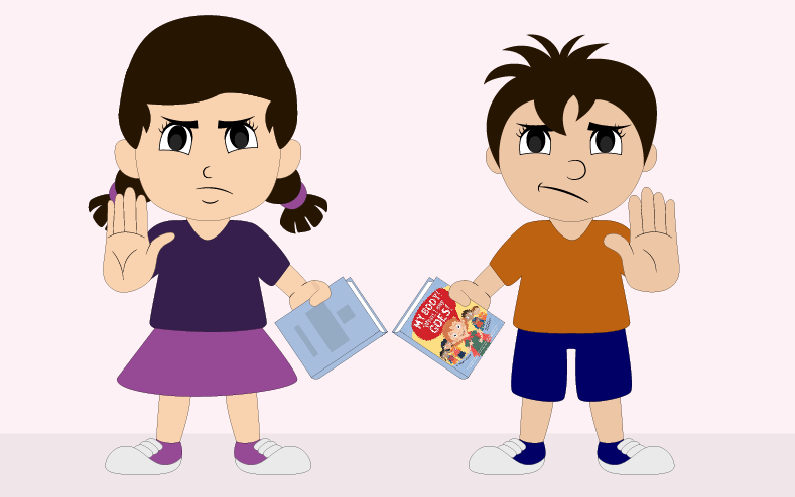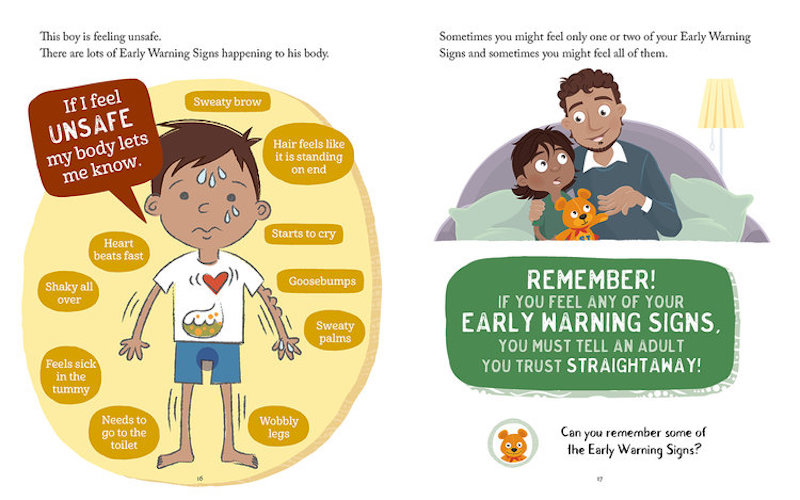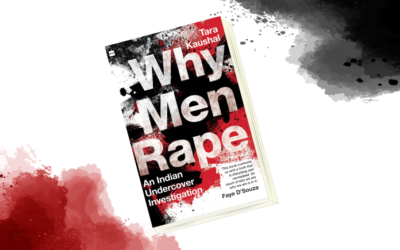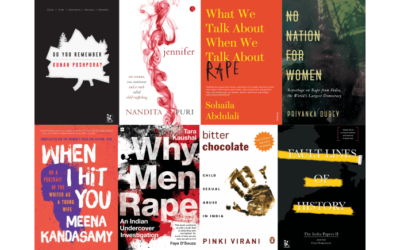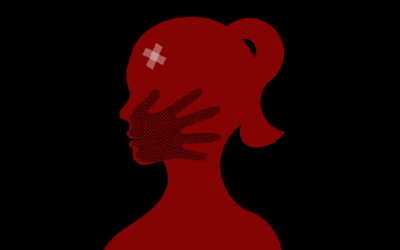Go-To Book
To Teach Your Children How To Protect Themselves From Sexual Abuse, Read My Body!
We live in a day and age where child sexual abuse, molestation and rape are way too common for comfort. It is almost scary raising a child. As per this report, not only is child abuse on the rise in India, but a child is sexually abused every 15 minutes! Furthermore, one in every two children is abused, one in every five children fears being abused, one in four families does not come forward, and so on. It is imperative that we make our children, whether sons or daughters, aware of the danger that lurks, how they can prevent such attacks and, should they happen, how to deal with them. Targeted at kids five years and up, Jayneen Sanders’ My Body! What I Say Goes!, is the perfect book for this as it teaches them how to be better equipped to deal with sexual abuse.
For me, the most interesting part of the book is that at every stage Sanders reinforces that a child’s body belongs to the child and the child alone, not to anyone else and that the child is always at liberty to say no to being touched- whether hugged or kissed by a loved one, or inappropriately by a sexual predator. It is very empowering for children to know this as it makes them feel like they completely own their own bodies.
The book begins by talking about feelings and asks children to identify when they feel happy, sad, scared, etc. It then spends some time describing situations where a child would normally feel safe (for example, snuggling with someone they love) and finally approaches the topic of feeling unsafe. From here on, it breaks down sexual abuse- from the act itself to how children can prevent it and deal with it.
“When I feel my Early Warning Signs I know something is not right. I know I must tell an adult I trust straightaway.”
Sanders tells children about the concept of Early Warning Signs- signs that their bodies will give them when it feels unsafe, when something is not right or when someone around them has malicious intent. We adults identify these signs as ‘gut feelings’ and remove ourselves from a dangerous situation when we feel it, but it is hard to explain this to a child. So Sanders uses the concept of Early Warning Signs. She tells children to be aware of signs such as a sweaty brow, an inexplicable urge to cry, a feeling of sickness in their stomachs, their heart beating faster, etc. These signs are the body’s way of warning them that something is not right. My Body! tells children that if they feel even a couple of the Early Warning Signs when they’re around someone or when they are out and about, they need to immediately tell an adult they feel safe with.
I especially liked the fact that Sanders is encouraging and empowering children to use their instincts as a way to avoid ending up in a predatory situation. Many books discuss good touch vs. bad touch and what to do after someone touches you inappropriately; however, not many books teach children what they can do to prevent such a situation. Children are inherently prone to talk about what they feel, and this book encourages them to do just that- pay attention to and address their feelings.
“My Safety Network is made up of five adults who I trust. Anytime I feel unsafe, or I am worried or scared, I can tell one of the adults on my Safety Network. If I can’t find that person, I can tell another adult on my Safety Network.”
Children naturally feel close to their parents and maybe, a few other family members, but they don’t necessarily think of the concept of a Safety Network. The Safety Network is a group of people, pre-identified by the child. They are comfortable with these adults and can talk about situations where they have felt uncomfortable or unsafe.
My Body! insists that one person on the Safety Network should not be an immediate family member. You have enough cases of family members (parents, uncles, siblings, etc.) being abusers and unfortunately, the family often chooses to ignore the situation or brush it under the carpet fearing societal shame. The book also states that 85% of sexually abused children reported that they knew their abuser. Hence, it is important that a non-family member (for example, their teacher) is a part of the child’s Safety Network. The book also illustrates that each child’s Safety Network can differ. While one’s Safety Network may consist of both parents, an uncle, a grandmother and a class teacher, another’s may comprise of a teacher, a neighbour, one parent, an aunt and a grandfather. This reinforces the fact that both parents don’t have to be part of the Safety Network and that the people in the child’s Network don’t have to be of a specific gender or sex. So, if the child is not comfortable with one parent, they do not have to be part of the Safety Network.
(Image credit: E2E Publishing)
“People sometimes call our private parts funny names like pee pee or fanny. But we should always use the correct names for our private parts.”
By empowering children with the knowledge of the correct names of their private parts, Sanders makes them immediately feel more in control of their bodies by being able to talk maturely about them. My Body! insists that children use the correct terms for private parts (penis, vulva, etc.) and even says that a child’s mouth and a boy’s nipples are private parts, even though they aren’t always covered. She reiterates that children are the bosses of their bodies, and absolutely no one should be touching their private parts other than a doctor and, that too, only in the presence of an adult from their Safety Network. She tells them they need to loudly say, “Stop! This is my body! What I say goes!” if someone tries to touch them or asks to be touched or tries to show them obscene pictures. It also advises children on the importance of reaching out to their Safety Network if such a situation were to arise.
“Surprises are different to secrets. Surprises are things that are happy and fun, and will always be told. Secrets can make you feel bad, especially if a person says you must never tell. That’s why we don’t have secrets in my family.”
One of the most common ways predators get to children is by telling them that what they’re doing has to remain a secret. My Body! is great because it differentiates between surprises and secrets, and how one is enjoyable while the other is dangerous. It uses examples of surprise birthday parties and surprise guests to show how these are happy situations, and most importantly, everyone will know about them eventually. Moving on to the subject of secrets, the book emphasises the fact that touching a private part inappropriately is not okay, and if someone is doing it to you, it cannot and should not be kept a secret. It addresses the issue that sexual predators may try to tell children that their acts are ‘their little secret’ but that itself is the biggest sign that children need to immediately approach someone from their Safety Network. Acts such as forcibly kissing you or showing you obscene photos are also unacceptable, and no matter how much the perpetrator may insist, children need to tell someone from their Safety Network about it.
(Image credit: E2E Publishing)
The book ends by summarising the five body safety rules- children’s bodies belong to them and they can say no if they don’t want someone touching them, the importance of paying attention to the Early Warning Signs, creating a Safety Network, using the correct names for private parts and talking about someone touching any of them, and not keeping secrets but only surprises. I recommend photocopying this page and keeping it handy for your child to read every couple of weeks. My Body! also gives parents discussion questions for each page of the book to help them start conversations with their children about this sensitive subject. These discussion questions also help children to think about abuse more deeply once the book is over.
As children grow older and become more independent, parents and guardians cannot be around them all the time, and children have to know how to deal with a sticky situation, should it arise. Furthermore, it’s an easy read for a child and doesn’t scare them into believing that sexual abuse is an eventuality, but lets them know that it is a possibility. We live in a world where there are sick and perverted minds out there, and we need to empower our children to deal with them, My Body! What I Say Goes! is the ideal book for that.

As a young boy, Nirbhay had the annoying habit of waking up at 5 a.m. Since television was a big no-no, he had no choice but to read to entertain himself and that is how his love affair with books began. A true-blue Piscean, books paved the path to his fantasy worlds- worlds he’d often rather stay in. Nirbhay is the co-founder and publisher of The Curious Reader.
You can read his articles, here.


